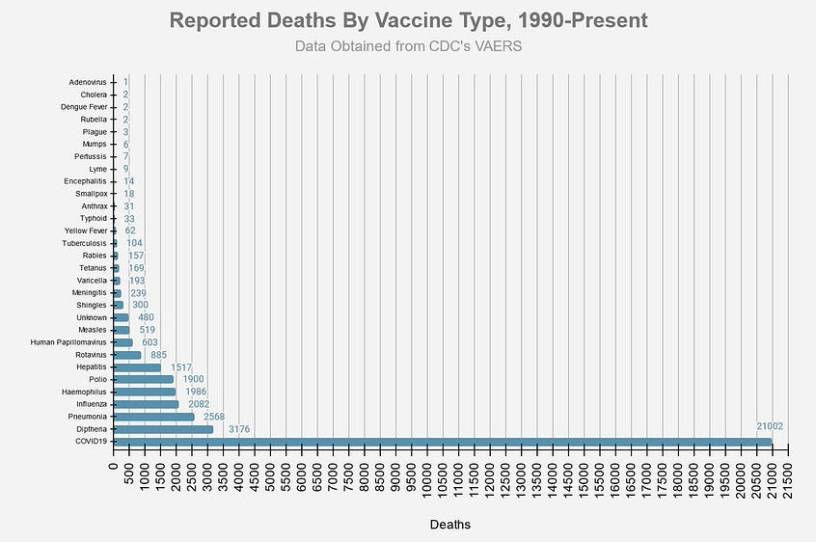Fact Checking Claims About VAERS and COVID-19 Vaccine Data

After Twitter suspended Georgia Republican Rep. Marjorie Taylor Greene’s personal account permanently “for repeated violations of our COVID-19 misinformation policy,” Rep. Chip Roy tweeted a chart with supposed COVID-19 vaccine data that Greene had previously tweeted. Roy’s tweet complained that Greene shared data from VAERS (the U.S. Vaccine Adverse Event System) that shows the “potential risk from COVID vax” and that “#BigHealthcare doesn’t want us to discuss this.”
Wisconsin GOP Sen. Ron Johnson, tweeted a similar claim:
VAERS is a system managed by the Centers for Disease Control and the Federal Drug Administration through which members of the public can report potential side effects of vaccines. (See this earlier fact check for additional background.) This data is both unvetted and unverified, and is used by health professionals to investigate possible side effects that were not caught in clinical trials. Side effects reported through VAERS can, of course, be real, but given the public submission process, VAERS is also littered with health issues that aren’t actually linked to vaccines and even completely fabricated submissions. The VAERS website disclaimer reads: “VAERS reports alone cannot be used to determine if a vaccine caused or contributed to an adverse event or illness. The report may contain information that is incomplete, inaccurate, coincidental, or unverifiable.”
Additionally, per the CDC “VAERS accepts reports of adverse events following vaccination without judging the cause or seriousness of the event. VAERS is not designed to determine if a vaccine caused an adverse event, but it is good at detecting unusual or unexpected patterns of reporting that might indicate possible safety problems that need a closer look.”
Dr. Sanjay Mishra, study coordinator and staff scientist at Vanderbilt University Medical Center, explained to The Dispatch Fact Check via email that: “Vaccine Adverse Event Reporting System (VAERS) is a passive and public reporting system with no expectation of quality control, which means the reports about adverse events are submitted voluntarily by anyone and not just by qualified healthcare providers, patients, or family members.”
“Not surprisingly, these reports often lack details and can sometimes be full of errors,” he said, “so they need to be verified to make a scientifically valid connection between the reported outcome and the vaccines.”
To further emphasize his point, Mishra gave the following example: “If I fall after taking a vaccine, and report a broken leg to VAERS, as an adverse event, it is unrelated to the vaccine but would count as a report.”
If you have a claim you would like to see us fact check, please send us an email at factcheck@thedispatch.com. If you would like to suggest a correction to this piece or any other Dispatch article, please email corrections@thedispatch.com.